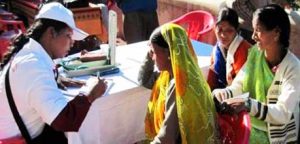Human Health Plays a crucial role in the Human Development.Even though human development is a broad concept with infinite dimensions, it is said that at all levels of development, there are three basic ones: a long and healthy life, access to knowledge, and a decent standard of living. Without these basic dimensions, other dimensions such as political freedom, the ability to participate in one’s community, self respect and so
on will often remain inaccessible.Under Article 47 of the constitution of India it is the duty of the State to raise the level of nutrition and the standard of living and to improve public health.The State shall regard the raising of the level of nutrition and the standard of living of its people and the improvement of public health as among its primary duties and, in particular, the State shall endeavour to bring about prohibition of the consumption except for medicinal purposes of intoxicating drinks and of drugs which are injurious to health.
The first Human Development Report was published in 1990,States human development as a process of enlarging people’s choices and enhancing their capabilities. The process concerns the creation of an enabling environment in which people can develop their full potential and live productive and creative lives according with their needs, interests and own values. In this sense, human development paradigm promotes well-being in a society.Human development is a process of enlarging people’s choices. The most critical ones are to lead a long and healthy life, to be educated and to enjoy a decent standard of living. Additional choices include political freedom, guaranteed human rights and self-respect.Human development has to be development of the people, by the people, for the people. Human development is about creating an environment in which people can develop their full potential and lead productive, creative lives in accord with their needs and interests.
The HDI was created to emphasize that people and their capabilities should be the ultimate criteria for assessing the development of a country, not economic growth alone. The HDI can also be used to question national policy choices, asking how two countries with the same level of GNI per capita can end up with different human development outcomes. These contrasts can stimulate debate about government policy priorities.
The Human Development Index (HDI) is a summary measure of average achievement in key dimensions of human development: a long and healthy life, being knowledgeable and have a decent standard of living. The HDI is the geometric mean of normalized indices for each of the following three dimensions:-
a. A long and healthy life, as reflected in life expectancy at birth.
b. The acquisition of education and knowledge, as reflected in the mean years of schooling (adjusted for out of school children) and literacy rate (age 7 years and above).
c. Th e standard of living and command over resources, as reflected in the monthly per capita expenditure adjusted for inflation and inequality.
India’s human development index (HDI) ranking for 2015 puts India ranked as 131 out of 188 countries. Asia’s third largest economy is among a group of countries classed as “medium” in
the list, as opposed to “low” in the 1990s, which is largely due to an increase in life expectancy and mean years of schooling in the past 25 years.The following are the reasons to keep India at the bottom of human development
(a) rapid increase in population
(b) large number of adult illiterates and low gross enrollment ratio
(c) high drop- out rates
(d) inadequate government expenditure on education and health,
(e) large proportion of under weight children as well as under nourished people
(f) very poor sanitation facilities and low access to essential life saving medicines.
KPSC Notes brings Prelims and Mains programs for KPSC Prelims and KPSC Mains Exam preparation. Various Programs initiated by KPSC Notes are as follows:-
- KPSC Mains Tests and Notes Program 2025
- KPSC Prelims Exam 2024- Test Series and Notes Program 2025
- KPSC Prelims and Mains Tests Series and Notes Program 2025
- KPSC Detailed Complete Prelims Notes 2025
